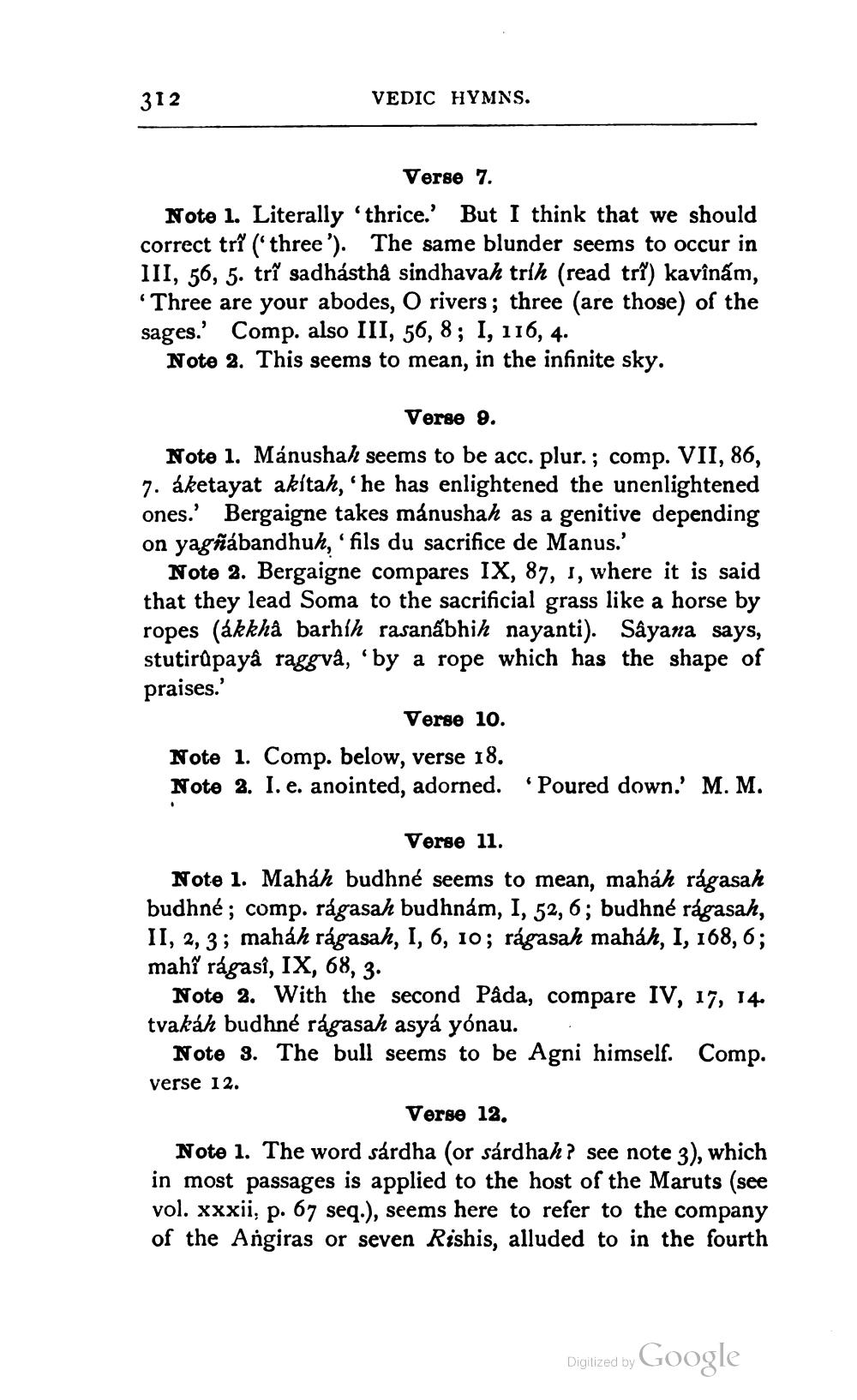________________
312
VEDIC HYMNS.
Verse 7.
Note 1. Literally 'thrice.' But I think that we should correct try ('three'). The same blunder seems to occur in III, 56, 5. tri sadhásthâ sindhavah trík (read trî) kavînấm, 'Three are your abodes, O rivers; three (are those) of the sages.' Comp. also III, 56, 8; I, 116, 4.
Note 2. This seems to mean, in the infinite sky.
Verse 9.
Note 1. Mánushal seems to be acc. plur.; comp. VII, 86, 7. áketayat akítah, 'he has enlightened the unenlightened ones.' Bergaigne takes mánushah as a genitive depending on yagñábandhuh, 'fils du sacrifice de Manus.'
Note 2. Bergaigne compares IX, 87, I, where it is said that they lead Soma to the sacrificial grass like a horse by ropes (ákkha barhíh rasanabhi nayanti). Sâyana says, stutirûpayâ raggvâ, 'by a rope which has the shape of praises.'
Verse 10.
Note 1. Comp. below, verse 18.
Note 2. I. e. anointed, adorned. Poured down.' M. M.
Verse 11.
Note 1. Maháh budhné seems to mean, mahák rágasah budhné; comp. rágasah budhnám, I, 52, 6; budhné rágasah, II, 2, 3; mahák rágasah, I, 6, 10; rágasah maháh, I, 168, 6; mahi rágasî, IX, 68, 3.
Note 2. With the second Pâda, compare IV, 17, 14. tvakák budhné rágasah asyá yónau.
Note 3. The bull seems to be Agni himself. Comp.
verse 12.
Verse 12.
Note 1. The word sárdha (or sárdhah? see note 3), which in most passages is applied to the host of the Maruts (see vol. xxxii, p. 67 seq.), seems here to refer to the company of the Angiras or seven Rishis, alluded to in the fourth
Digitized by
Google




